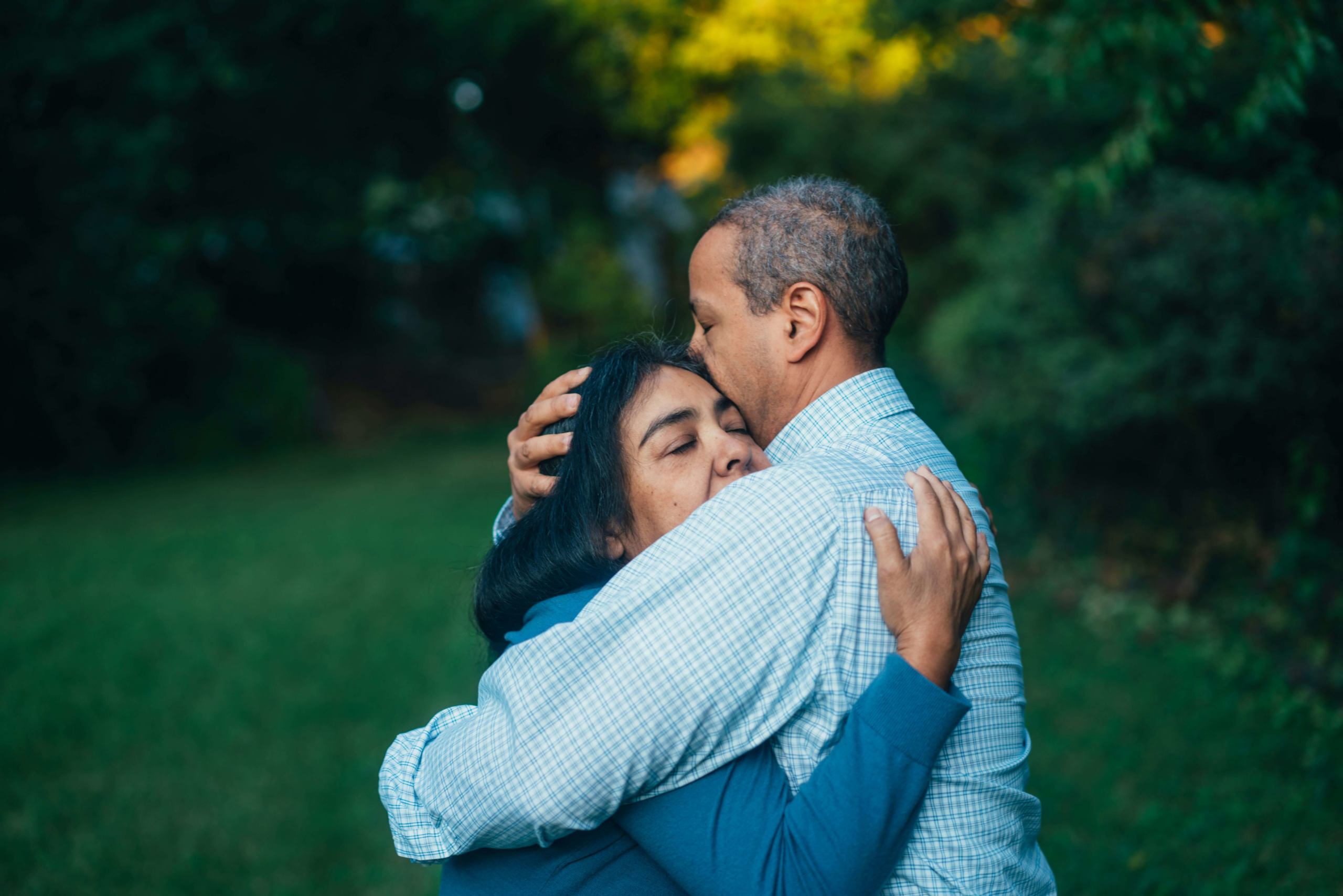My community lost a dear person unexpectedly last week. He was a beloved and large hearted kind man who never met a stranger and had a smile that would light your world. At tender times like this, I find myself pondering the big questions of life, what it all means, how I am living it … I even ask am I living it? Annie Dillard wrote in The Writing Life, “How we spend our days is, of course, how we spend our lives.” So true and yet I forget. I forget that it’s in the daily and often the mundane that we find real connection, purpose, and meaning. But how do we do that? How do we find meaning and purpose amidst the daily tasks of life? How do we make meaning out of the mundane?
I write this blog to get back in touch with an essential truth of life – that what brings meaning to my life can be found right where I am. I just need to look, see, and be open. In this blog post, I will touch on existentialism and what it means to experience an existential crisis or to simply go through a time of questioning why you are here, who you are, or what is next. Existential questioning is normal, whether it is spurred by a specific event or comes naturally at a time of subtle unease. Know, too, that if you feel lost in your own attempts to make sense out of life that you are not alone. I hope these words will help you find some solace as you seek answers to some of life’s deeper questions.
Existential Angst is Real
Know that the existential crisis is real and, for some, a distressing life phase that can cause one to question their very existence. Triggers are as varied as the individuals who experience it. A traumatic event, the death of a loved one, a major life change, or even an intense period of self-reflection can serve as the impetus for deeper questioning. Societal forces can also bring on existential questioning. Since these societal forces may go unnoticed as real triggers, I want to identify some specific ones that can lead to existential angst. You may find that they resonate.
We are living in chaotic and challenging times. On some level we are experiencing a form of collective existential questioning or universal existential angst. Widespread cultural shifts, a global pandemic, uncertain job markets, a rise in fundamentalism and nationalism, hate rhetoric, and division are some of the present day factors that can cause one to question meaning and purpose. The world can feel disorienting and meaningless when things become unfamiliar. So, if you find yourself grappling with what it means to be alive and human in today’s world, know you are not alone
Too, in an age where attention is a commodity and ‘likes’ a form of currency, we can find ourselves caught in a world of superficial interactions and fleeting experiences. The digital realm, though an invaluable tool for connection and knowledge sharing, often leads to numb scrolling and disconnection from human touch and meaningful interactions. I know that I am guilty of this – scrolling mindlessly. While the digital age gives way to an unprecedented level of interconnectedness, it paradoxically tends to yield false connections and loneliness.
Individualistic philosophies compounded by lives lived on our screens can lead to alienation. And the impact on well-being is profound. What we know is that human beings are wired for connection. We need connections – – not only to survive but to thrive. As Brene Brown says, “Connection is why we’re here. We are hardwired to connect with others, it’s what gives purpose and meaning to our lives, and without it there is suffering.” In a culture where independence and making it on one’s own is a sign of remarkable success it can be challenging to embrace the idea that our optimum health relies on a core need for connection. Studies show repeatedly that the quality of our relationships directly impacts our physical and mental health in the short and long-term. Relationships matter and without them life can seem meaningless.
Chaotic times, a digital world, and a nation built on self-reliance and “pulling yourself up by your bootstraps” are collective factors of our culture that can most certainly spur on an existential crisis. If you find yourself feeling intense unease and cannot put your finger on the why, consider the way culture and societal messages may be impacting your overall state of mind and well-being.
What Does an Existential Crisis look like?
The symptoms of an existential crisis can vary from mild episodes of anxiety to full-blown existential dread. Common signs include a deep sense of emptiness, a feeling of being lost or purposeless, excessive rumination about the past, the present, or visions of a future that seem devoid of meaning, an internal conflict about personal values and beliefs, a feeling of detachment from the world and others, and decision paralysis arising from the inability to attach significance to one’s choices. Often, there is a feeling of being stuck. If you feel any of the above, you may want to reach out for help, talk to a friend, or seek a group that is openly exploring the bigger questions of life.
The Search for Meaning and the Existential Crisis
The meaning of life is one of life’s greatest mysteries. Carl Jung said, “Meaninglessness inhibits fullness of life and is therefore equivalent to illness. Meaning makes a great many things endurable—perhaps everything.” At its base existentialism focuses on the meaning of human existence and finding one’s purpose in what can feel like a mysterious, senseless world. It is natural to question, natural to want to dig deeper. This is how we grow; it’s how we discover who we are and what our purpose is. As Socrates declared, “The unexamined life is not worth living.” It’s only when living the questions turns from curiosity into dread that we step into the realm of existential crisis.
A Sense of Meaninglessness is Usually at the Root of an Existential Crisis
Getting caught up or swallowed up in the mundane, the day to day of life, is a real thing. When in a state of meaninglessness, it can be hard to take even a small step. If you are stuck in the mundane, read on. I offer some questions and thoughts that may initiate a move from existential dread to existential exploration, a space that can help you find your place of meaning in the world, once again.
1. Think about how you are living your day to day life. Ask, “Am I living it?” This is the biggest question. In a way it eliminates the need to look too far into the future or back in the past. This keeps you in the present, the only place we can really feel meaning. Narrowing the question can help reduce anxiety and dread about having to figure it all out. Take one day and answer the question. Accept your answers even if they are disagreeable to you. This is a place to start.
2. Ask, “What little moments of significance or little moments of connections are happening in my day?” This could be your morning ritual of having coffee or tea before heading to work – a moment of connection with yourself before you step into the busyness of the day. It could be a walk with your dog, a giggle from your child, a new bloom, the morning sunset, the book you cannot wait to get back to, or a bath at the end of the day. It could be any moment, even a moment of sadness, that touches you. Note it. Feel it.
3. Look at the relationships in your life and ask, “Which relationships feel rich with potential?” Often, we have people in our lives who care but we avoid reaching out, especially when we are feeling stuck or lost. Take a moment to think of those who are safe and with whom you could begin to create little moments of connections. Consider the notion that it’s the little moments that add up and bring meaning into life.
4. Traveling to work, dropping off your kids to school, or running errands? What do you see? Take a moment to look. Often, we fail to notice the budding trees of spring, a stunning architectural feature, an individual smiling on the street, two people embracing love or sorrow, a funny or insightful sticker on the car ahead, the story of another along our way. Meaningful connections are all around. We just forget to look. We forget to take them in. In my own moments of dread, if I pause to look, I can usually find something that touches my heart.
Try to ponder your day to day life and what you think is mundane with curiosity. There are many parts and pieces to day to day life. You may want to extend your questioning to your work, meal preparations, bedtime routines, caretaking roles, or any other part of your day. And remember that you get to choose what is meaningful to you. Also, remember what is meaningful to you may not be to others. That is okay! Take your time. Be patient with yourself. Remember you are not alone.
A tip. I keep a “little moments of connection” journal to remind me of what is happening in my day-to-day life. When I get down, lonely, or have moments where I feel lost, I pull it out. A “little moment of connection” can be anything from a moment with yourself, another, your pet, nature . . . anything you deem meaningful. Find your little moments of connection and honor them. Let them add up and create meaning in your life. Go back to your journal when a sense of dread comes on.
An existential crisis is not inherently negative nor entirely avoidable. It can, instead, be a critical juncture in life that presents an opportunity for deep introspection, personal growth, and the discovery of a richer, more meaningful existence. By understanding the nature of an existential crisis, recognizing its signs, and knowing how to respond, you can feel purpose again. Beauty lies in the act of creating meaning, question by question, moment to moment into the larger whole that is your life. If you feel stuck, lost, or alone in your struggle, reach out. I specialize in guiding individuals through existential exploration, helping them connect to their purpose. My goal is to work towards a space where the hopes and dreams you have for yourself on the inside match the life you are living on the outside.
 Other Therapy Services Offered at Lysle Shaw Psychotherapy in Austin, Houston, and throughout Texas
Other Therapy Services Offered at Lysle Shaw Psychotherapy in Austin, Houston, and throughout Texas
In addition to Existential Exploration, I offer Online Trauma Therapy, Therapy for Relationship Issues, and Therapy for Introverts, Empaths, and Highly Sensitive Persons. Begin your journey toward healing and growth by reaching out today. Find more articles like this on my blog!

Recent Posts
Can You Heal From Relational Trauma? Part 1
Absolutely, you can heal from relational trauma! In this series of blog posts, I'm excited to introduce you to Gretchen Schmelzer’s Trail Guide to the 5-Phase Cycle of Healing Repeated Trauma. Gretchen, a psychologist, trauma [...]
Relationships Matter! Insights from an Online Relational Therapist in Houston, TX
Spring is upon us and here in Houston, Texas, it's likely to phase into summer heat soon. We happily got a cool snap this week and I found myself able to do my runs under [...]
Can You Recover from Religious and Spiritual Trauma? Exploring With Online Trauma Therapy in Austin, TX
A Brief Look at Trauma Before we look at religious and spiritual trauma let’s look at a brief definition of trauma. Trauma is any event that overwhelms a person’s ability to cope with it. This [...]


 Other Therapy Services Offered at Lysle Shaw Psychotherapy in Austin, Houston, and throughout Texas
Other Therapy Services Offered at Lysle Shaw Psychotherapy in Austin, Houston, and throughout Texas


